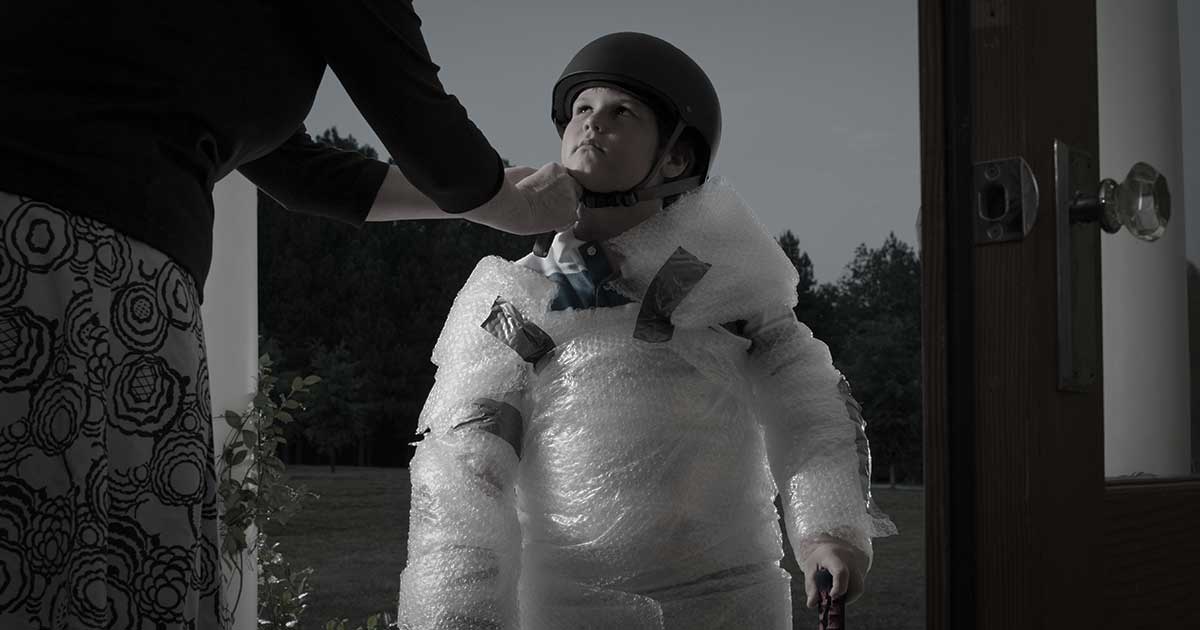Your task is to build a man out of the raw materials available in your delightful little boy, stone upon stone upon stone. This task must be your highest priority for a period of time. It will not always be required of you. Before you know it, that child at your feet will become a young man who will pack his bags and take his first halting steps into the adult world.
Raising children who have been loaned to us for a brief moment outranks every other responsibility. Besides, living by that priority when kids are small will produce the greatest rewards at maturity.
If it seems to you that we are making our kids grow up too fast these days, you are correct. Far too many parents seem to be in a big hurry to make teenagers out of their kids. Some parents arrange actual "dates" for their ten- or twelve-year-olds and give them adult materials to read. You are right to resist this tendency to rush your children through childhood.
Parents in the past had a better understanding of the need for an orderly progression through childhood. Kids in that day were given plenty of time to play and giggle and be themselves. There were cultural "markers" that determined the ages at which certain behaviors were appropriate. Boys, for example, wore short pants until they were twelve or thirteen. Now those markers have disappeared, or they have been moved downward.
Children are depicted on TV as having more insight and maturity than their elders. They are rushed, ready or not, from the womb to the nursery school to the adult world at a breakneck pace.
This scurrying to maturity leaves a child without a strong foundation on which to build, because it takes time to build a healthy human being. When you rush the process, your kids have to deal with sexual and peer pressures for which their young minds are not prepared.
There is another problem with making children grow up too quickly. When you treat them as though they are adults, it becomes more difficult to set limits on their adolescent behavior down the road. How can you establish a curfew for a thirteen-year-old rebel who has been taught to think of himself as your peer? Besides, what's the big hurry, anyway?
You are right to savor those childhood years and let the developmental process march to its own internal drumbeat. On the other hand, I get questions from parents about when it is time to let go. For instance, a sixteen-year-old son wants to go on a supervised, three-week outing in a nearby national forest. The boys will eat off the land as much as possible and learn to deal with nature on its own terms. The parents are reluctant to let him go, however. It scares them to think of him being out there somewhere beyond their ability to help him if he gets in difficulty. It just seems safer to keep him at home. Are they right to turn him down?
I remind those parents that within a couple of years, their son will be gone off to college or to some other pursuit, perhaps the military, and he will be entirely beyond their reach. Why not give him a taste of that independence now, while he is still under their care? It will be better for him to ease away from their influence than to have it come to a sudden end.
There was a moment during my teen years when my mother and I had a similar debate. I was sixteen years old and had been invited to work on a shrimp boat during the summer. The captain and crew were tough dudes who didn't put up with any nonsense. It was a man's world, and I was drawn to it. My mother was very reluctant to grant permission because she understood that there could be dangers out there in the Gulf of Mexico for four days.
She was about to say no when I said, "How long are you going to keep me as your little boy? I'm growing up, and I want to go." With that, she relented. It turned out to be a good experience during which I learned what it is like to work whether or not I felt like it, and I began to understand better how the adult world works. I came back grimy and tired but feeling very good about myself. My mother later acknowledged that she had done the right thing, even though she worried the entire time.
There's a balance between letting your son grow up according to his own internal drumbeat and easing him away from your influence to walk on his own. "Letting go" works best as a gradual process. It's time to get started.
Savor the childhood years and let the developmental process march to its own internal drumbeat.
From Dr. Dobson's book Dads and Sons.












